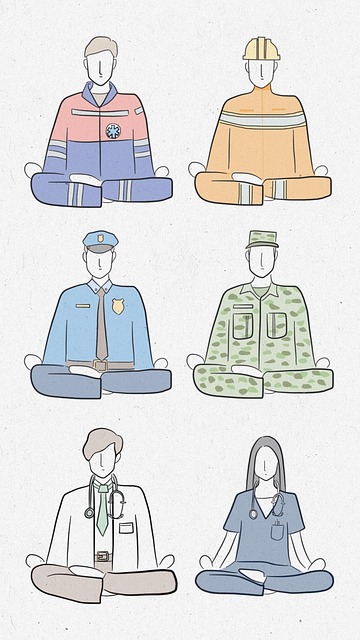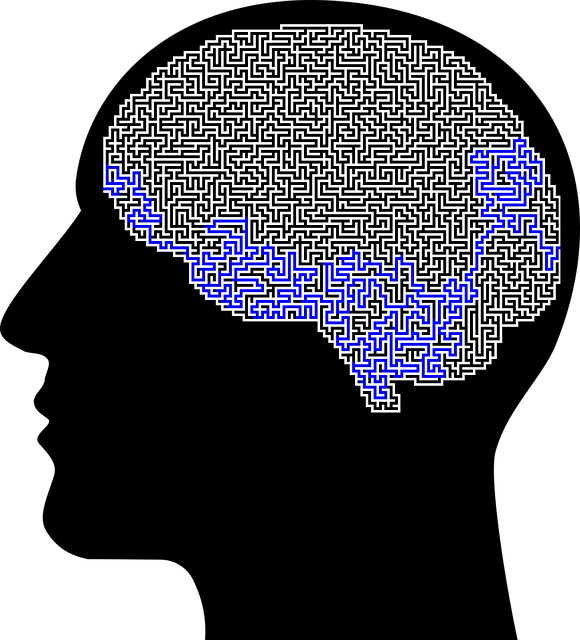Mental Health Crisis Hotlines (including Westminster Abuse Survivors Therapy) provide 24/7 support for individuals in acute emotional distress, offering non-judgmental guidance and connecting them with resources. These hotlines cater to those dealing with depression, anxiety, trauma from abuse, or stress-inducing conflicts, providing immediate solace and coping strategies. WAST offers crisis intervention services using holistic approaches like compassion cultivation to empower trauma survivors. Accessing these services during crises can be life-saving, with key steps including recognizing distress signs, preparing thoughts, and communicating clearly with counselors. Hotline operators, rigorously trained in risk assessment and de-escalation, create safe spaces for expression while guiding individuals towards long-term recovery resources.
“In times of mental health crisis, immediate support can be a lifeline. This article explores the critical role of hotline services as a vital resource for those in distress. We delve into the functions of organizations like Westminster Abuse Survivors Therapy (WEST), which provides crisis intervention and recovery support.
Through practical tips and insights into hotline operations, readers will understand how these services work behind the scenes, empowering individuals to access help effectively.”
- Understanding Mental Health Crisis Hotlines: A Vital Resource for Support
- The Role of Westminster Abuse Survivors Therapy in Crisis Intervention
- Accessing and Utilizing Hotline Services: Practical Tips for Those in Need
- Behind the Scenes: The Impact and Training of Crisis Hotline Operators
Understanding Mental Health Crisis Hotlines: A Vital Resource for Support

Mental Health Crisis Hotlines serve as a vital resource for individuals facing acute emotional distress or mental health crises. These 24/7 services provide immediate support, offering a safe and non-judgmental space for people to express their concerns. Trained professionals on these hotlines are equipped with the knowledge to assess situations, offer guidance, and connect callers with appropriate resources, be it local crisis centers, therapy options, or suicide prevention networks.
For those grappling with mental health challenges, whether it’s depression, anxiety, trauma from abuse (as addressed by Westminster Abuse Survivors Therapy), or conflicts leading to stress and emotional turmoil, these hotlines offer a lifeline. They not only provide immediate solace but also equip individuals with conflict resolution techniques and stress management strategies, fostering emotional intelligence and resilience.
The Role of Westminster Abuse Survivors Therapy in Crisis Intervention

Westminster Abuse Survivors Therapy (WAST) plays a pivotal role in crisis intervention services, offering specialized support for individuals facing mental health crises related to trauma and abuse. Their team of trained professionals provides immediate assistance, ensuring that those in distress receive the care they need. WAST’s approach focuses on empowering survivors through various therapeutic techniques, including compassion cultivation practices and emotional healing processes, which are integral to their holistic development.
By implementing tailored Mental Wellness Coaching Programs, WAST helps clients navigate challenging situations and build resilience. These programs address not just the symptoms but also the underlying causes of distress, fostering a supportive environment for healing. Through their dedicated services, WAST becomes a beacon of hope, guiding individuals towards recovery and restoration, ultimately contributing to improved mental wellness outcomes.
Accessing and Utilizing Hotline Services: Practical Tips for Those in Need

Accessing hotline support services for mental health crises can seem daunting, but with the right approach, individuals in need can find comfort and guidance. The first step is to recognize when a crisis is imminent or has occurred; this could be due to intensifying anxiety, depression, or traumatic memories. Many hotlines offer confidential and anonymous services, ensuring individuals feel safe to express their feelings openly.
When reaching out, it’s beneficial to prepare by jotting down thoughts, feelings, and any recent stressors. Providing clear and concise information aids the hotline counselor in understanding your situation promptly. If cultural competency training or stigma reduction efforts are of concern, many healthcare providers now incorporate compassion cultivation practices into their support systems, fostering an empathetic environment. Remember, these services are designed to offer immediate assistance and connect you with appropriate resources for long-term recovery and resilience.
Behind the Scenes: The Impact and Training of Crisis Hotline Operators

Behind the scenes, mental health crisis hotline operators play a pivotal role in supporting individuals facing severe emotional distress or contemplating self-harm. These dedicated professionals are often the first point of contact for folks seeking immediate assistance and guidance. They undergo rigorous training to equip them with essential skills, ensuring they can navigate complex situations with compassion and expertise.
The impact of their work is profound, providing a safe space for individuals to express their struggles, whether it’s related to trauma, abuse, or acute mental health crises. Operators at organizations like Westminster Abuse Survivors Therapy (WAST) are trained in risk assessment, crisis de-escalation techniques, and self-care practices, enabling them to offer tailored support. Moreover, they often collaborate with other mental health professionals and community resources through stress management workshops and organizational initiatives to enhance their capabilities and the overall well-being of those they serve.
Mental health crisis hotline support services play a pivotal role in offering immediate assistance and long-term guidance. Organizations like Westminster Abuse Survivors Therapy (WAST) exemplify the power of crisis intervention, providing essential resources for those navigating mental health challenges. By leveraging practical tips for accessing these services and understanding the impact of dedicated operators, individuals can effectively navigate crisis points. With continued support and training, hotline services will remain a robust component of our collective mental well-being ecosystem.














